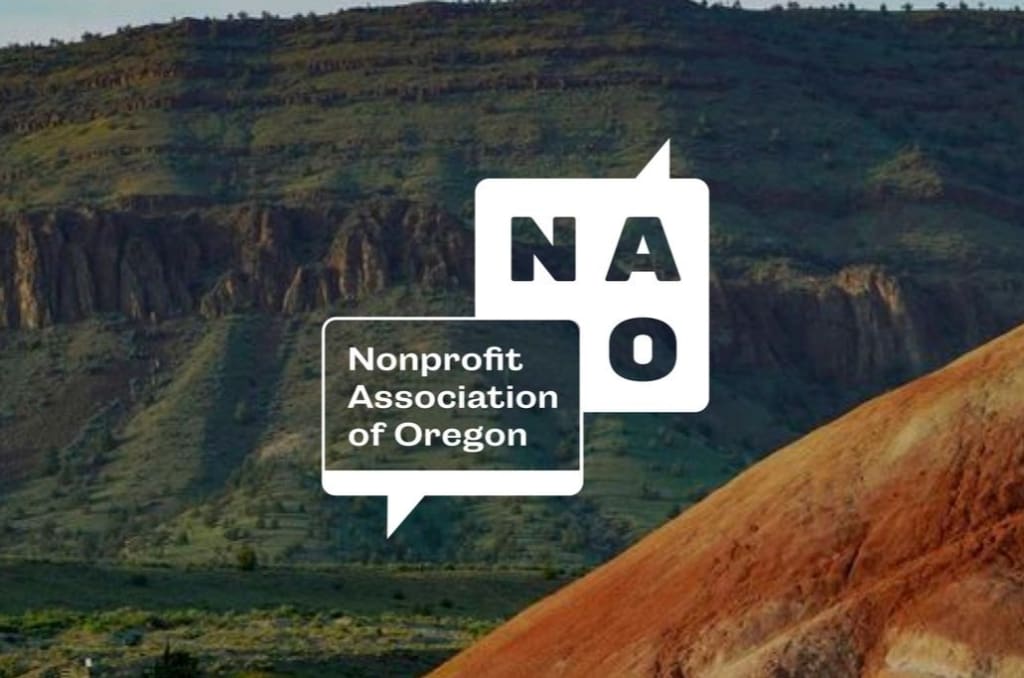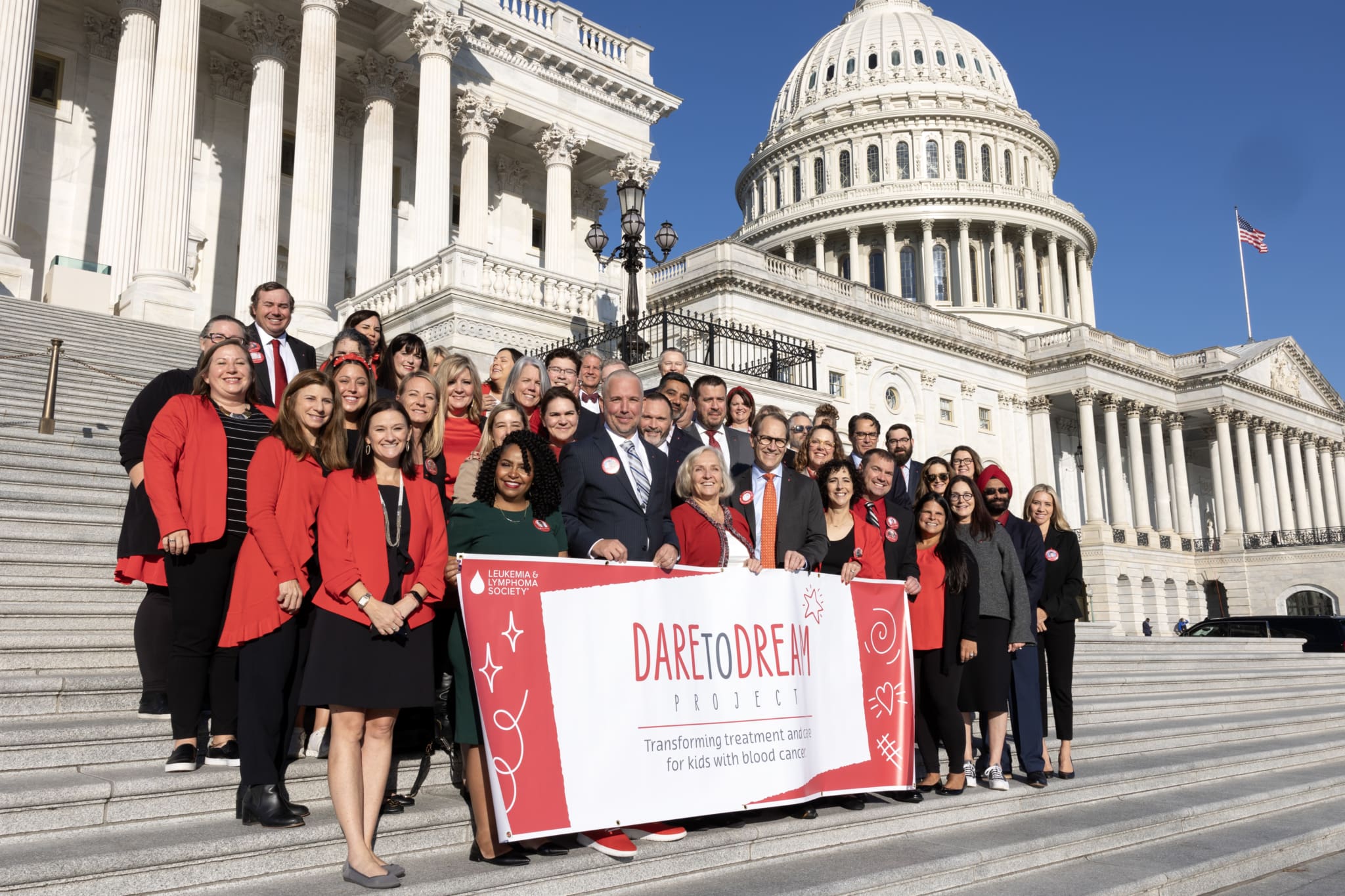By Sarah Spangler, Tim Rusk, and Tia Bangura with the Nonprofit Association of Oregon
Independent Sector President and CEO Dr. Akilah Watkins embarked on a cross-country Listening Tour from May 2023 to March 2024 to hear about challenges, trends, and opportunities in the charitable sector. This September, IS and Nonprofit Association of Oregon (NAO), an IS member, replicated the cross-country Listening Tour model in Oregon. Sarah Spangler, director of nonprofit education; Tim Rusk, nonprofit education specialist; and Tia Bangura, program manager at NAO share what they learned.
Our team at Nonprofit Association of Oregon (NAO), the statewide membership association for the nonprofit sector, were thrilled to host our colleagues from Independent Sector during the Oregon version of IS’s Listening Tour. With our team spread across Oregon, we know the unique dynamics of our state’s nonprofit sector and the vast geography that creates “micro-cultures” in our state. This tour offered a chance to connect local voices with broader national trends and understand what common and different dynamics are being experienced regardless of urban and rural boundaries. Common themes emerged from the visits to the cities of Corvallis, Eugene, Portland, and Bend that underscored shared challenges and opportunities across diverse nonprofit communities.
Eugene: Recognizing the Power of the Sector
Eugene is home to the University of Oregon and is known for its vibrant arts scene and progressive culture. Eugene has the second largest concentration of nonprofits in the state, at nearly 3,000, and its nonprofits showcased an inspiring level of resourcefulness. Eugene is a community that believes in what nonprofits do, and community members regularly volunteer and support public benefit organizations. Despite growing needs in the community for health, housing, and addiction services — and limited or even decreasing budgets — the sector in Eugene is finding innovative ways to deliver impactful programs.
Key Takeaways:
- Drivers of Workforce and Economy: Nonprofits play a critical role as employers and contributors to the economy. However, they often struggle to be recognized as legitimate, professional enterprises making significant contributions to economic growth. Greater acknowledgment of their role is essential, along with further inclusion of nonprofit voices in policymaking and economic planning.
- Challenges in Government Contracting: Nonprofits face ongoing challenges with government contracts, including inadequate funding for living wages, delayed payments, and burdensome reporting requirements. Many nonprofits support or directly engage in related advocacy efforts at the state and federal level that could implement solutions to these ongoing issues.
- Resilience Amid Adversity: Many nonprofits already operating on shoestring budgets have felt the effects of the region’s recent natural disasters, including ice storms and wildfires, yet their ability to leverage volunteers and partnerships stood out as a strength. Many play a critical role in response and recovery efforts.
Corvallis: Seeking Strength in Community
Our session in Corvallis revealed a deep sense of community and a strong emphasis on connection. Home to Oregon State University, founded as a land-grant agricultural school, Corvallis and Benton County are set against an agricultural backdrop. Corvallis nonprofits are deeply integrated into local life, and they must find ways to sustain themselves in a community that often tops the list of the most rent-burdened cities in the state.
Key Takeaways:
- Rural-Urban Collaboration: Nonprofits bridge gaps between urban and rural areas to ensure services reach remote regions. Support for rural organizations (including funding, capacity building, and workforce development) provides a lifeline to communities across Oregon. Benton Community Foundation’s recently developed community space was where we held this Listening Tour conversation, with everyone excited to have the new investment in this collaborative space.
- Cost-of-Living Pressures: Rising housing costs and the overall high cost of living create dual challenges for nonprofits. The increased demand for services places added strain on organizations already grappling with workforce challenges, as wages often fail to keep pace with the rising expenses faced by their employees.
- Stronger Together: Nonprofits, particularly smaller organizations, often face challenges in managing operations such as employee healthcare plans, retirement programs, and day-to-day administrative tasks. This session discussed innovative ways to share this workload, including collective investment in external support systems for back-office functions. NAO is actively exploring these ideas, recognizing the potential for a collective approach to enhance efficiency and sustainability across the sector.
Portland: Trust in Nonprofits and Philanthropy
In Portland, discussions centered on trust in nonprofits and philanthropy, guided by recent IS studies and findings.
Key Takeaways:
- Leveraging Nonprofit Trust: Nonprofits are the most trusted institutions in society — with trust in nonprofits rebounding by 5 points this year to 57%. How will we make use of that for more effective outreach and programs with program participants?
- Growing Needs, Shrinking Resources: Nonprofits are concerned about maintaining momentum as both government and some foundation grants and programs come to an end. The need for many services has grown, but the resources are shrinking. Participants voiced concerns about how they will move forward, with difficult roads ahead in securing new sources of support, deciding to make cuts, or a combination of both.
- Maintaining Racial Diversity Efforts: Nonprofits invested and have made good strides in addressing racial diversity within their organizations and leadership, but more needs to be done. As one participant put it, “Now is not the time to take the foot off the gas.” With shrinking resources, will these steps forward stall?
- Calls for Greater Investments: Generally, many participants voiced their ideas on the need for greater investments being made now and in the next years to avoid going backwards. Several participants posited: Is now the time for foundations to grant significantly more than their legally required distributions?
- Strengthening Nonprofit Advocacy: Trust in the advocacy role of nonprofits remains mixed, and data show that fewer nonprofits are engaging in advocacy efforts. As stated above, nonprofit advocacy efforts are needed now more than ever before. What more can coalitions and sector-spanning organizations do to build capacity in advocacy engagement by nonprofits?
Bend: The Balancing Act of Rapid Growth
Bend has undergone significant transformation in recent years due to rapid population growth and economic development. Nonprofit leaders shared their experiences navigating both the opportunities and challenges that come with this changing landscape.
Key Takeaways:
- Changing the Nonprofit Narrative: We need to create a better understanding of how nonprofits make a unique contribution to the economic vitality of the Central Oregon region. Participants shared that too often they are perceived as government services that are funded through tax dollars — which many are not!
- Worker and Housing Challenges: The competition for workers and housing has reached critical mass. With the eighth fastest growing economy in the country, the Central Oregon region is now too expensive for many nonprofit workers to live in.
- Competition for Shrinking Resources: The sector is struggling with greater competition for shrinking resources. Many participants talked about how we need to find “real” means to collaborate and even look at merging our programs and organizations.
- Succession and Leadership Gaps: The turnover of long-term staff and board members is real and hitting the area hard. How do we capture institutional memory and connections while also making room for younger leaders?
Connecting the Dots: Trends Across Oregon and Beyond
Despite their unique contexts, the Listening Tour sessions in Bend, Corvallis, Eugene, and Portland revealed consistent themes, including several that resonate with larger cities in other parts of the country like Atlanta and Washington, DC. Housing affordability, workforce sustainability, and collaboration remain universal challenges. The resilience and ingenuity of nonprofit leaders are evident regardless of city size, but our sector is also tired. Staff and volunteers are feeling an ever-increasing burden as government and the private sector falter in their responsibilities.
Reflections on Conducting a Listening Tour
The Oregon version of the Listening Tour reinforced the value of meeting communities where they are. Our participants were excited and even a bit flattered by the team from IS, led by President and CEO Dr. Akilah Watkins, taking interest in their situation. One participant said, “I can’t believe that people from Washington, DC have come here to spend time listening to us. This is incredible.”
What we at NAO learned while putting on this Listening Tour was:
- Tailored Engagement: Each city’s unique character and challenges require flexibility and open-mindedness.
- Power of Listening: Honest dialogue fosters trust and yields actionable insights. Akilah and the IS team showed incredible discipline and resolve in not trying to respond to everything, but rather taking the time to listen. Participants felt truly heard.
- Shared Learning: Smaller communities can offer lessons that inspire larger cities, and often the problems they are facing are similar, just contextually different.
We deeply appreciate the time we spent with Independent Sector staff, whose insights and collaboration enriched every conversation. Until next time!
Nonprofit Association of Oregon staff contributing to this blog include Sarah Spangler, director of nonprofit education; Tim Rusk, nonprofit education specialist; and Tia Bangura, program manager.



